| |

|
|
|
| |
| March 2015 |
 From the President: From the President:
As a board we often ponder the questions of "How do we serve the Organizational Development community?" which leads to the definition from our home page "Organization Development is a dynamic values-based approach to systems change in organizations and communities; it strives to build the capacity to achieve and sustain a new desired state that benefits the organization or community and the world around them."
I believe to define something you must also define what it is not. In this regard, I am going to yield my comments to accommodate the words of the Oregon OD Network's president, Robert McCarthy:
What Is Organization Development
Robert E. McCarthy
"The challenges before us in business, government, and as societies are urgent. Our ability to live healthy and satisfying lives on a small planet is threatened by globalization, climate change, population, and poverty. Organization development practitioners skilled in system change and bringing people together can help meet these challenges. For organization development to be effective it must be clear about what it is. Organization development (OD) is a straightforward idea. OD practitioners are third parties system consultants invited to partner with leaders to improve the effectiveness and health of their organizations, and to build community that can address society’s challenges. What we do and how we do it depends on the culture of the organization, its situation and the culture of country in which it resides.
Effectiveness means increasing the organization's capacity to innovate, and work together that improves performance and results. Health is the capacity for self-reliance that enables people to solve problems successful in the future.
Over the past 30 years this understanding of organization development has become muddled, and with it, its credibility has waned.
Part of the confusion is we incorporate new and helpful methodologies that were not anticipated or discussed by the founders of the field. Open space, appreciative inquiry, future search, whole system large group interventions, mindfulness, diversity and multicultural training are important OD interventions, but they are not OD. Accepting them as such diminishes the field, confuses our clients, and limits our work.
Practitioners who specialize in one or two approaches to OD can be offended when they are told their work is not OD. New approaches do not redefine the field. They enrich it. This is an opportunity for candid discussion. Or, a reason behind a lack of clarity and multiple definitions of OD that create confusion.
We now have access to a wider range of methods than ever before. And yet, as practitioners, each of us has particular strengths and preferences. It is unlikely we are good at all of them. No matter. When we understand the range of possible methods, we can invite our colleagues who are particularly skilled at the intervention that is called for to join with us. The client gets what they need and we broaden our repertoire as practitioners.
Practicing organization development requires that we become familiar with a wide range of methods and approaches. We do our clients and ourselves a disservice by relying on one or two approaches to help them, no matter how skilled we might be. Nails abound for our hammer as it were.
Our ultimate aim is for our client, with our help, to understand and to “own” their situation and how to address it. When we are most effective, the members of the organization grow in understanding and ability to address these and other problems for themselves in the future. The organization is healthier.
Perhaps the greatest challenge to doing our work well is coming to understand ourselves and to become more fully our authentic selves. For it is only when we become more authentic is it possible to develop trust and partnership. Without which there is no organization development.
The methods we use are not ours. They belong to our clients who increasingly are becoming capable and confident in using them to improve their organizations without our help. This self-sufficiency should be our goal and cause for celebration."
As Robert says:
"Over the past 30 years this understanding of organization development has become muddled, and with it, its credibility has waned.
Part of the confusion is we incorporate new and helpful methodologies that were not anticipated or discussed by the founders of the field. Open space, appreciative inquiry, future search, whole system large group interventions, mindfulness, diversity and multicultural training are important OD interventions, but they are not OD. Accepting them as such diminishes the field, confuses our clients, and limits our work."
What resonates with you about Bob's thoughts of "What is Organizational Development?" and "What is it Not?" Please email me at president@pnodn.org
Best,
Joey Pauley
President PNODN
|
| NEWS |
Member Update
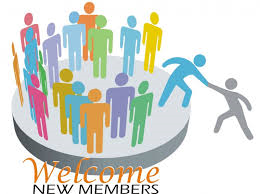 PNODN would like to warmly welcome the following new members: PNODN would like to warmly welcome the following new members:
Bryn C.
Teri M.
Debbie S.
Jack T.
Lisa F.
Derek O.
We thank them for their support of PNODN and invite you to join us as well. 
“Thank you for welcoming me so warmly to ODN. In the past 15 years, I’ve lived in 8 different cities. Each time I move, I can count on ODN being a place where I will meet automatic friends and colleagues.” Shannon Wallis
____________________________________________
Immunity to Change Workshop - March 12th
Former PNODN Board Member, Mo Raei is bringing back his popular workshop, 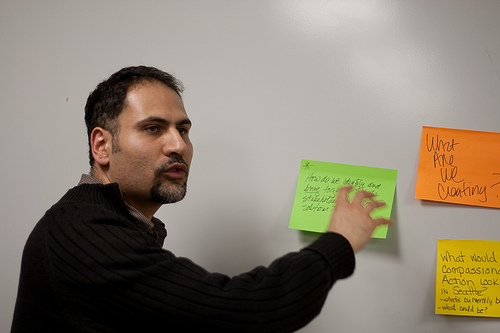 Immunity to Change on March 12th from 9 - 1pm at the 2100 Building in Seattle. Immunity to Change on March 12th from 9 - 1pm at the 2100 Building in Seattle.
While individuals, teams and organizations might be committed to a certain change at the organizational, professional or personal level, what is preventing them from changing is their competing commitment(s)? Mo will explore this topic in depth. To find out more and register . . .
____________________________________________
Proposals being accepted for the 2015 OD Network │ IODA Annual Conference and 2nd OD World Summit to be held in Portland October 17 - 20, 2015.
The Program Committee for the ODN/IODA Annual Conference is looking for dynamic and engaging facilitators who not only bring their skills and experiences to the conference, but bring learnings to share with participants that are experiential, relatable and transferable.
Facilitators will host sessions on topics relevant to the three main themes (Our Field. Our World. Our Impact), initiate conversations and dialogue that deepen understanding of OD principles and practices across cultures, and engage participants with emerging perspectives in our field.
The request for proposals closes March 23, 2015. Submit your proposal today!
For details on how to submit your proposal and other conference information, click here.
____________________________________________________________________
|
|
|
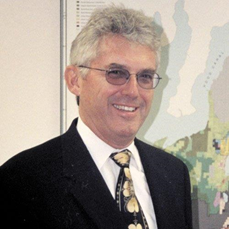 March 16th Program March 16th Program
David Porter will be facilitating our meeting for March and driving to the Seattle PNODN from Portland. He currently works with the US Department of Commerce, Economic Development Administration (EDA) as a Community & Organization Development Representative and serves Oregon State along with 15 southern-tier counties in Washington State. He has been working in the Organizational Development field for over 15 years. He earned a masters degree in Human Resource Management at the University of Washington and recently completed an OD Certification Program at Georgetown University. He also served for three years as a Program Leader for Context Associated (now Context International) where he facilitated the company’s signature personal and professional effectiveness programs - “The Pursuit of Excellence” and “The Wall” - throughout the Pacific Northwest and Canada. Since joining EDA David has has leveraged his OD repertoire to advance community readiness and build leadership teams throughout his territory.
In the upcoming March meeting David will be examining with live case studies how fabrications create “reasons barriers” that get in the way of goals and these assumptions mask our 'Cherished beliefs" that is, affirmations about ourselves, the utmost positive truth about ourselves and the reality of our beliefs. With David's extensive background, he has helped leaders of all backgrounds to discover their Cherished beliefs and now he will be sharing his techniques while helping us discover our very own Cherished beliefs. Plan to join us on the 16th!
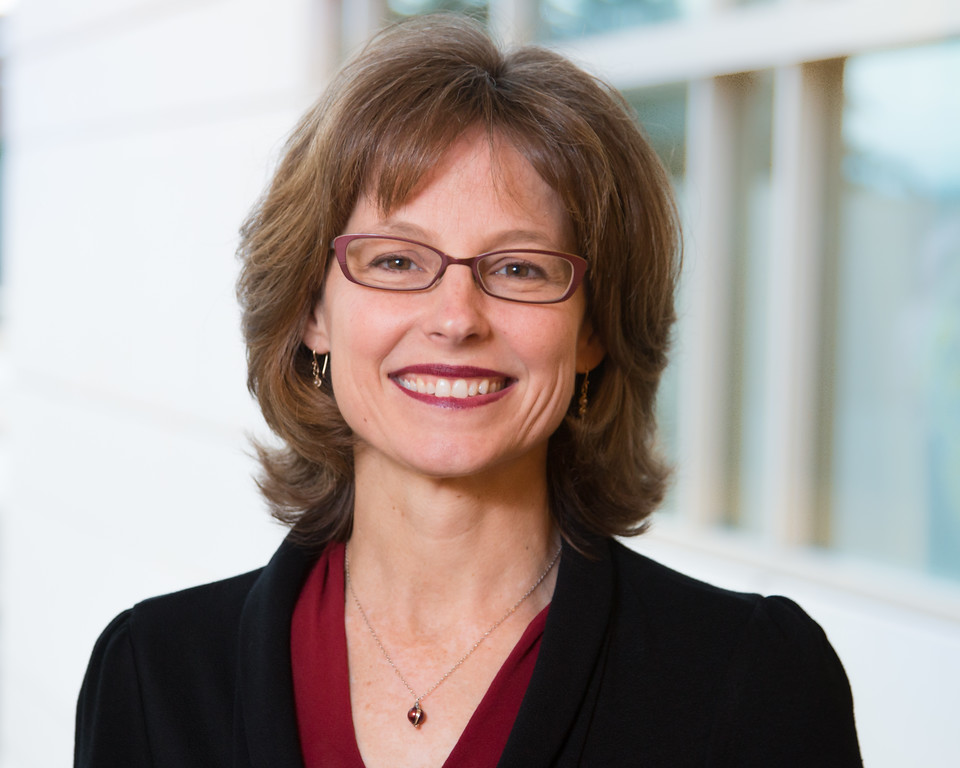 February's PROGRAM - The Pace of Relationship with Nina Simonds February's PROGRAM - The Pace of Relationship with Nina Simonds
The meeting held by Nina Simonds explored PACE (Presence, Authenticity, Creativity, and Empathy) in relationships and members at the meeting had the opportunity to discover or rediscover their personal truths as a professional. Members interacted with one another in groups to their own energy rhythms, created white space and explored the model in small groups. Collectively the group explored the meaning of the PACE model and how it related to their current state of relationships or situations. Participants also took a short quiz assessing strategies using the PACE model and shared it with each other to identify further opportunities. Overall, Nina did a excellent job of presenting her model with relevant case studies while providing everyone the opportunity to apply it in their current life.
________________________________________________________________________________
|
Case Study
Savvy Slips, Learning on the Run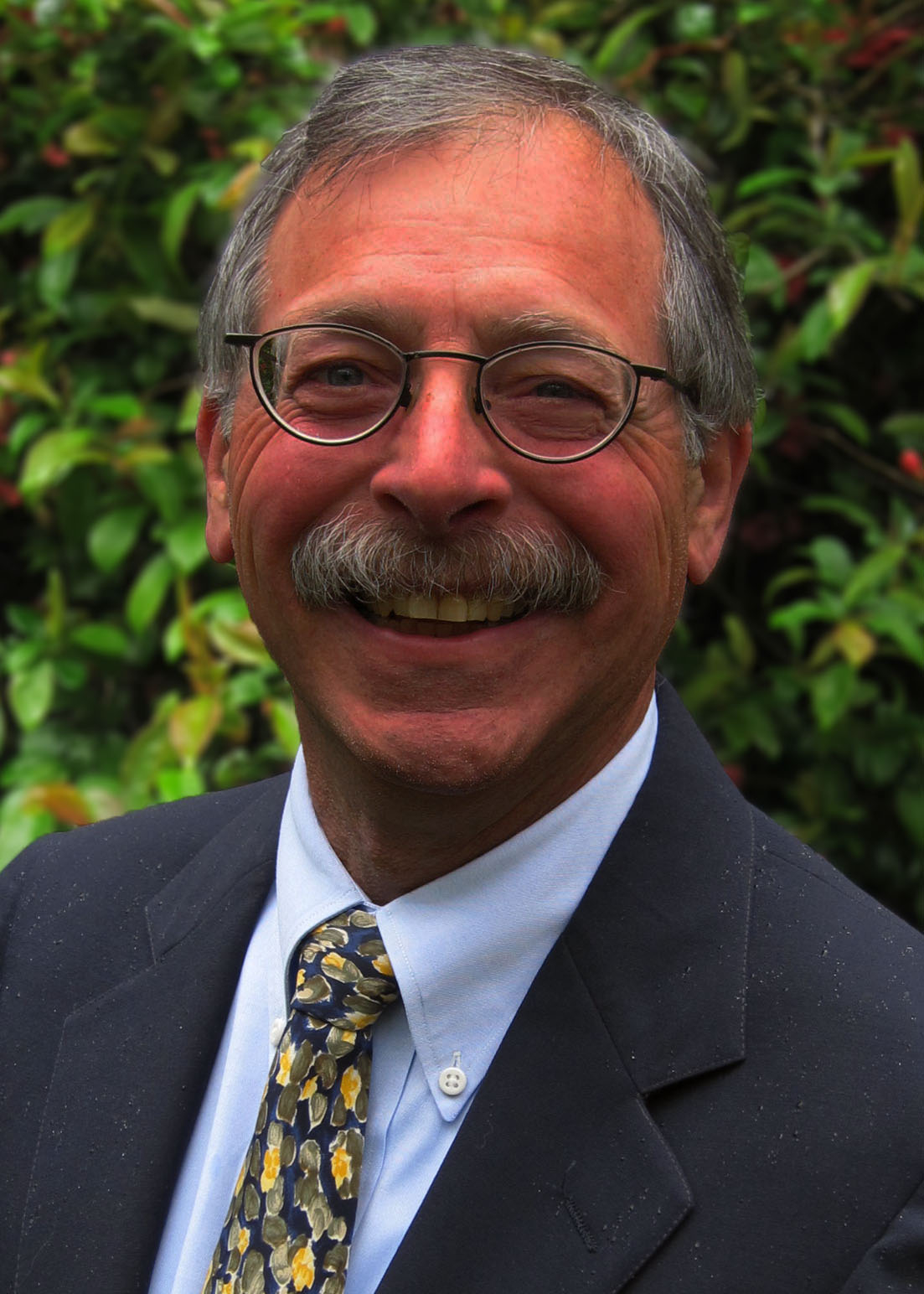
by Philip Heller
Each month PNODN MEMBER Philip Heller will be submitting a mini-case study from his years of experience. We and he welcome feedback from our membership as to the value of these studies.
Learnings from Practice 4: Image Exchange
How to create a unifying approach from departments with differing visions yet needing to work interdependently on collateral tasks?
The Request. A director of a state regulatory department sensed a growing divide between two divisions that reported to her and wanted a facilitator who would conduct an all-hands off-site with both divisions. The department was responsible for regulating and permitting the trucking and carrier industry to ensure public safety on state highways. One division was responsible for ensuring adequate vehicle maintenance and drivability and the other division was responsible for the drivers and company processes that would impact transportation safety. The Director wanted the divisions to create a cohesive and unified philosophy and approach to enforcement so customers felt that there was a departmental consistency in enforcement.
Larger Context. Staff from both divisions were interacting with the same “customers” from companies that they were regulating. Several VPs from different companies were beginning to complain that the two divisions were sending conflicting messages about the extent of regulatory violations and what was needed to correct them. The Managers for each division had very different interpersonal styles that created conflict between them. This conflict trickled down so the divisional safety and engineering staff were beginning to “form into camps” as well. Additionally, the divisions represented very different disciplines and philosophies for how to treat their customers: A cooperative and coaching approach or a stricter evaluative and decree approach.
Consulting Intervention. There were several initial planning and feedback meetings with the two Division Managers. They agreed to sponsor a 2-day off-site for everyone in both divisions. Also, they were able to be frank with each other about their differences and realized the impact that was having on their respective staffs. After an all-hands introductory meeting, everyone was given a chance to be interviewed by the consultant. The interview information was summarized and presented to the Managers. The retreat consisted of three components.
Part 1. Leadership Commitments. The managers presented the feedback they received from the summarized interviews and shared any adjustments they were prepared to make and be held accountable for.
Part 2 Best Practice Vision. At mixed tables, staff took turns sharing stories of a successfully resolved compliance issue. Common themes and intriguing ideas formed the basis for a recommended best practice vision.1
Part 3. Image Exchange.2 Participants were asked to place themselves along a scale, from cooperative to aggressive enforcement. After some reactions to the data generated, tables were formed of those who scaled themselves similarly in how they approached enforcement. The tables were asked to respond and report on three questions3.
1. How do you see yourselves when it comes to enforcement? What do you value most about your approach? What assumptions do you make about yourselves as a group?
2. What assumptions do you make about those who may have a different approach?
3. Taking an “outsider’s viewpoint”, what might you consider your “contribution” towards any unproductive disagreements or “camps” you or others may experience?
The groups them proceeded to define solutions and next steps for all hands consensus building and managerial sponsorship.
Last Line. Helping groups in conflict to share their perceptions honestly while surfacing uncomfortable feelings can form the basis for problem solving and lasting cooperation.
1 For a detailed discussion of the appreciative process, see: Bushe, G. (1998) Appreciative Inquiry with Teams. The Organization Development Journal, 16:3, 41-50.
2 Image exchange is presented as detailed case studies in: Burke, W.W. (1972) Managing Conflicts Between Groups. In, New Technologies in Organization Development, John D. Adams, Eds. NTL Institute for Applied Behavioral Science and in: Blake, R.R. Shepard, H, & Mouton, J.S. (1964) Managing Intergroup Conflict in Industry. Gulf Publishing Co.
3 For a copy of the handouts used, go to: http://learningdesigna.com/resourcescategory/inter-department-dispute-resolution/
Philip Heller is the senior associate of Learning Design Associates. For 35 years he has helped plan systems change and develop leaders in government, community agencies, and health care centers. Philip received his Ph.D. in Education focusing on learning and problem solving. As part of the originating group, he has been a PNODN member since 1982.
|
|
|
_____________________________________________________
Book Review
Book Review by David C. Wigglesworth
Obolensky, Nick COMPLEX ADAPTIVE LEADERSHIP – Embracing Paradox and Uncertainty. 2nd Edition. 2014:Gower Publishing Company, Burlington, VT. 249pp $49.95
The first edition of this book broke new ground in exploring leadership and its complexities. This new edition furthers the exploration by including the latest research and thinking of others. The book is a textbook not something you pick up for a summer read. It is thoughtful, well-researched, as well as well-designed and brings you to new perspectives on leadership.
The book is comprised of eleven chapters separated by headings: the context; chaos and complexity; the leadership angle; and looking forward and other interests. Each chapter starts with a reflective exercise to open up your mind to prepare you for the material that will follow and each chapter ends with a brief summary. There are four appendices: a-the insights of Tao and Buffalo Maps; b-polyarchy and leadership models; c-polyarchy and the relevance to modern political leadership; and d-leadership development. There is an extensive bibliography and the book is well indexed.
In a short review, such as this, I think it is best to look at the words used in the title of the book in order to get some idea about this work.
Complexity science according to the author “shows that under seemingly simple things there is a complex dynamical system at play. So the cup of coffee on your desk may seem simple, but for it even to be there, with the myriad of interconnected events and people at play to bring it all together, is complex.”
He posits that “simplicity and complexity, order and chaos, are interconnected in a dynamic rather than being two different and contradictory states a paradox.”
Leadership traditionally has been something done by the hopefully wise few over the many. He, instead sees “a form of leadership that is adaptive, complex, and seemingly chaotic dynamic involving all. This is a more polyarchic view (leadership of the many by the many – a seeming paradox).”
“In this book the key paradox is that leaders need to be able to follow well, and enable others to take the lead, rather than just provide the lead themselves, expecting others to follow.”
To define the final word in the title “uncertainty”, the author states that this book is “intended to complement the more predictive and deterministic tools that exist by enabling a deeper appreciation for the dynamics of uncertainty and complexity. Uncertainty is treated…as a necessary part of life, and a natural part of dynamic improvement and progress.”
The book does not intend to dispense with traditional leadership. Rather the author is looking at leadership in a different way so that the oligarchic and polyarchic are seen as complimentary. And with the polyarchic view being harder to define it requires an understanding and acceptance of uncertainty.
As I indicated this is not light reading but the richness of the text, the multiple examples, the creative reasoning, and its direct application to the real world make it a most significant book.
|
|
AROUND TOWN From our February Speaker, Nina Simonds:
CO-ACTIVE® COACHING IS COMING TO SEATTLE!
April 24-April 26, 2015
Here’s your opportunity to grow personally and professionally with CTI, whose Co-Active Coach® training program has been hailed as the “Gold Standard” by the Institute of Coaching, a Harvard Medical School affiliate.
ARE YOU INTERESTED IN:
• Learning how to be more coach-like in your current role?
• Earning a professional coaching designation or discovering what coaching is all about?
• Actively pursuing a coaching career and wanting to deepen your skills?
• Seeking to enhance your personal and professional relationships?
• Wanting to improve your communication with the important people in your life?
Find out more here.
PNODN's 2015 Corporate Sponsor Adaquest presents....
THE STRATEGIC ILLUSION ROUNDTABLE - March 18th
You’ve just returned from an off-site meeting charting the next year of your organization. You’re quickly pulled back into the reality of day-to-day operations. How do you ensure your strategy will be realized?
Join executives, project managers, and functional managers for an interactive webinar about realizing a vision. As a team, see a proven approach to addressing common problems that leaders face while changing organizations amidst dynamic environments. You can have a roadmap for delivering results that you can define, communicate, manage and track.
HOW TO REACH US
|
|
President – Joey Pauley
Vice President – Magda C. Kaspery
Secretary/Treasurer – Carol Turner
Programming - Pooja Agnihotri
Past President - Rachel Dexheimer
Our Administrator is: Ann M. Baus

The Editor of the newsletter is David C. Wigglesworth
From The Editor
This is your newsletter and we welcome and encourage your contributions. They could include personal news of a professional achievement, a brief article of interest, a short book review, a case study, a cartoon, a joke that is OD relevant and/or anything else that might be of interest to your colleagues who are our readers. I thank you in advance.
|
|
|
|
|